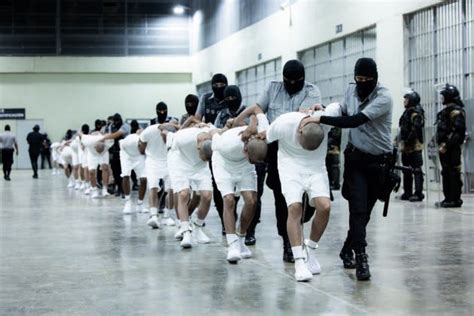As part of its border strategy, the administration deported Venezuelan migrants to a notorious prison in El Salvador, claiming the deportees were Tren de Aragua gang members. Because of the nature of gang documentation, the claim that they are all violent gang members is dubious. The policy is more than a legal civil liberties nightmare; it is strategically ill-advised. Deporting suspected gang members will not stop gangs. Transnational gangs are a serious problem, but there is a better way to deal with them.
Many have heard of the MS-13 gang because of its penchant for violence. Few, however, know that MS-13 was a small crew for much of its early history before becoming one of the largest criminal enterprises in the world. How did this happen?
Researchers have argued that immigration reforms in the mid-1990s had the unintended consequence of spreading criminal networks. University of California, San Diego, anthropology professor Elana Zilberg made the observation in her book “Space of Detention” that America’s policy of deporting Salvadoran youth contributed to the spread of MS-13. The gang was born in Los Angeles, but it flourished in Central America only after the United States shipped its members back to unstable countries with policies that exacerbated gangs. Rather than eliminating MS-13, the problem was exported, and then it boomeranged back even stronger to the United States.
President Trump is poised to repeat the same mistake. In his first term, Trump “pointed the finger” at President Barack Obama, suggesting that Obama’s “open-door immigration” was responsible for MS-13 prominence. However, the gang’s size and strength were established before Obama, and the argument does not explain MS-13’s success in other countries.
A key flaw in Trump’s approach and America’s handling of gangs is the belief that harsher punishments prevent gang activity. While deterrents are needed, gangs are fundamentally different from typical petty criminals.
In 2019, Erin Yoshino of the University of Southern California studied why harsher penalties for gang members are ineffective, finding that longer sentences do not deter crime and that people join gangs knowing full well that death is a possibility. Instead, incarceration can enhance respect and loyalty among gang members as they maintain control from jail. If threats of mortal danger or prison do not dissuade gang membership, a one-way flight to a Salvadoran prison is unlikely to do better.
People join gangs for various social reasons, such as feelings of belonging or a sense of protection, but they thrive and grow violent as money-making enterprises, primarily through the sale of illicit drugs. Steven Levitt, known for “Freakonomics,” researched how the allure of reaching the top is a strong motivator for drug dealers despite the perils and terrible working conditions. The potential rewards outweigh the risks of imprisonment or death for those who accept the job.
To dismantle transnational gangs, our policies must hit them where it truly stings: their wallets. Researchers know how to do this, but it has not been politically correct to talk about it because it is unpopular to acknowledge defeat, and cognitive bias keeps us from exploring research-backed but counterintuitive policies.
To fight gangs, the strongest weapon is legalizing drugs to undercut their primary source of revenue. The decriminalization of cannabis in the United States has dealt a blow to Mexican cartels, resulting in lower crime rates and gang activity.
Scholars have understood this for decades. Several Nobel laureates have made it a point to publicly express that the war on drugs has failed, all while leading to corruption and violence.
People who advocate for drug prohibition often claim the moral high ground. This is understandable, but they are propping up what they claim to oppose in practice. It is the classic “Baptists and bootleggers” story: the moralists and the criminal profiteers are on the same team as they both want drugs to be illegal. The former claims moral victory, while the latter benefits from governments inadvertently creating lucrative black markets.
Social norms against iniquitous drug use should remain, but it is time to recognize the ineffectiveness of banging our heads against the wall regarding past “get tough” policies toward international drug gangs. The strategy of mass deportations will not stop gang violence. Strip the gangs of their profits. That’s how you defeat them.
Reprinted with permission from Independent Institute.

